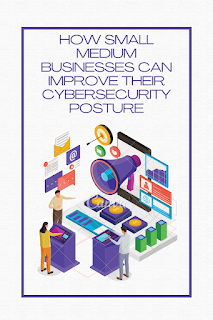As the technology advances, cybersecurity has gained popularity and increased demand in recent years. Many media have reported that there are lack of cybersecurity professionals and many jobs have gone unfilled. If you're interested to join the cybersecurity field, here are the key steps you should do to get started:
1. Understand the Basics of Cybersecurity
Before diving into specialized areas, it’s important to have a solid understanding of what cybersecurity is and its role in protecting digital assets. Focus on these foundational concepts:
- Confidentiality, Integrity, and Availability (CIA Triad): The core principles of cybersecurity.
- Types of Cyber Threats: Malware, phishing, ransomware, and social engineering.
- Basic Networking: Understand IP addresses, TCP/IP, DNS, VPNs, firewalls, and routers.
2. Get Familiar with Key Tools & Technologies
To be effective in the field, you need hands-on experience with the tools that cybersecurity professionals use. Some important tools to explore include:
- Firewalls and Intrusion Detection Systems (IDS).
- Encryption tools for data protection.
- Security Information and Event Management (SIEM) platforms like Splunk or ELK Stack.
- Vulnerability scanners such as Nessus or OpenVAS.
- Penetration testing tools like Metasploit, Burp Suite, or Wireshark.
3. Choose a Specialization
Cybersecurity is a vast field, so narrowing down a specific area of interest can help. Some common specializations include:
- Network Security: Protecting the network infrastructure and preventing unauthorized access.
- Application Security: Securing software and applications from vulnerabilities.
- Incident Response: Managing and responding to security breaches and incidents.
- Threat Intelligence: Analyzing and understanding cyber threats and their origins.
- Compliance and Risk Management: Ensuring organizations meet legal and regulatory requirements (e.g., GDPR, HIPAA).
4. Obtain Relevant Certifications
Certifications help validate your skills and demonstrate your competence to potential employers. Some well-recognized cybersecurity certifications include:
- CompTIA Security+: A great entry-level certification that covers the basics of cybersecurity.
- Certified Information Systems Security Professional (CISSP): For professionals with more experience.
- Certified Ethical Hacker (CEH): Focuses on penetration testing and ethical hacking.
- Certified Information Security Manager (CISM): Focuses on managing and governing cybersecurity programs.
- Cisco Certified CyberOps Associate: Useful for those interested in network security.
5. Hands-On Practice
Cybersecurity is a practical field that requires hands-on skills. Set up a home lab or use online platforms to practice real-world scenarios. Some options include:
- TryHackMe and Hack The Box: Interactive platforms with labs for practicing penetration testing and other skills.
- Build a Home Lab: Set up virtual machines and test security tools and configurations in a controlled environment.
- Open Source Tools: Play with open-source tools like Wireshark, Snort, or Kali Linux to improve your practical knowledge.
6. Stay Current with Threats and Trends
Cybersecurity is a constantly evolving field, with new threats emerging every day. To stay ahead:
- Follow Cybersecurity Blogs and News Sites: Sources like Krebs on Security, Dark Reading, and Threatpost will help you stay informed.
- Participate in Forums: Join cybersecurity communities like Reddit’s r/cybersecurity, or specialized forums like StackExchange or InfoSec World.
- Attend Conferences & Webinars: Look for events like Black Hat, DEF CON, RSA, or local meetups to network and learn.
7. Build a Network
Building relationships with other professionals in the industry is vital for your growth:
- LinkedIn: Engage with cybersecurity professionals on LinkedIn to learn from their experiences.
- Local Meetups: Join local groups to meet people in person and exchange ideas.
- Mentorship: Find a mentor in the field who can offer advice and help you grow.
8. Understand Cybersecurity Governance & Risk
As a leader, it's crucial to understand how to align cybersecurity strategies with business goals:
- Cybersecurity Frameworks: Familiarize yourself with standards like NIST, ISO 27001, and the CIS Controls.
- Risk Management: Understand how to assess, mitigate, and manage cybersecurity risks in an organization.
- Compliance: Learn about laws and regulations like GDPR, HIPAA, and PCI-DSS.
9. Consider the Soft Skills
While technical skills are vital, soft skills are equally important for a successful cybersecurity career:
- Communication Skills: You’ll need to explain complex technical issues to non-technical stakeholders.
- Problem-Solving: Cybersecurity is about solving puzzles and identifying vulnerabilities.
- Teamwork: Collaboration with other IT professionals, executives, and departments is key.
- Attention to Detail: Cybersecurity requires a keen eye for identifying even the smallest security gaps.
10. Seek Entry-Level Opportunities
Start with entry-level roles to build experience. Some possible starting positions include:
- Security Analyst: Monitoring and analyzing security systems.
- Network Administrator: Managing and securing network infrastructure.
- Incident Responder: Responding to and investigating security incidents.
- SOC Analyst: Working in a Security Operations Center to monitor for threats.
11. Invest in Continuous Learning
The cybersecurity landscape is always changing, so continuous education is essential. Regularly take courses, read books, and participate in webinars to enhance your skills and stay relevant.
Conclusion
Cybersecurity is a dynamic, high-demand field, and getting started involves both acquiring the necessary technical expertise and developing a broader understanding of security concepts. It requires dedication, a continuous learning mindset, and the ability to adapt to new challenges. By following these steps, newcomers can lay a solid foundation and eventually build a successful career in cybersecurity.






